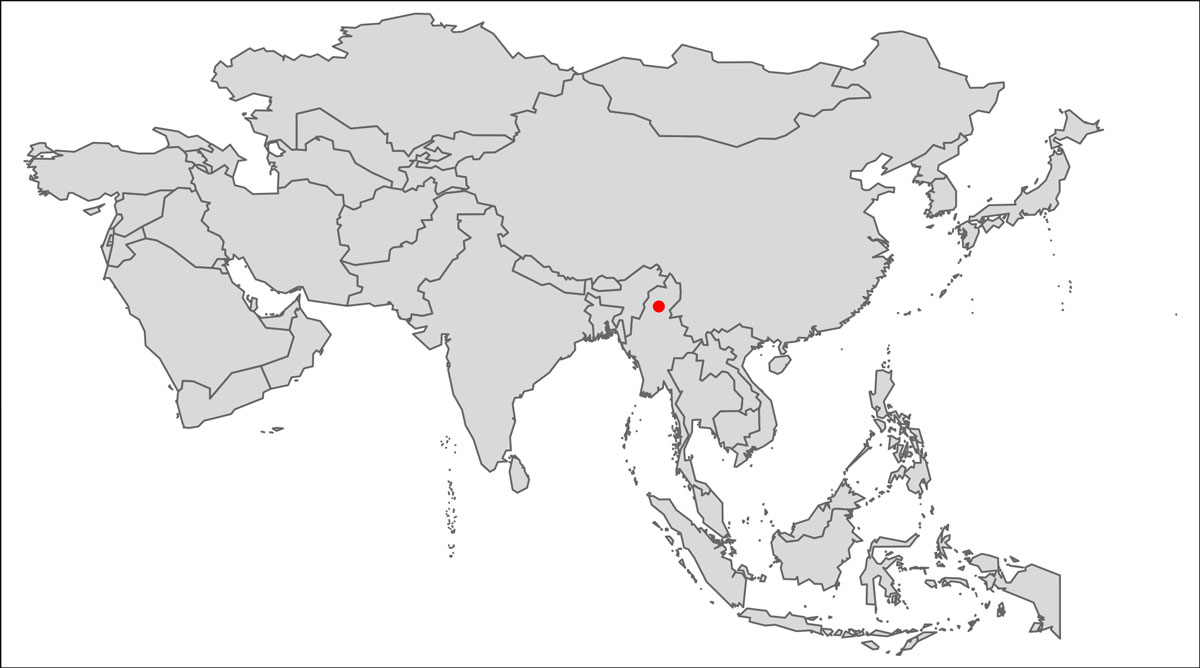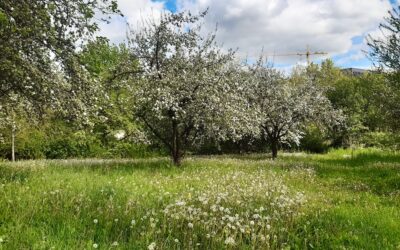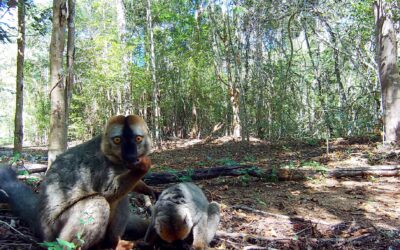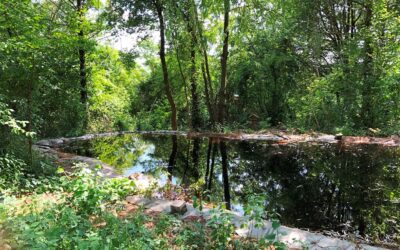Perspectives for grey giants
Management of wild and tame elephants at Indawgyi Lake in Myanmar

UNESCO Biosphere Reserve Indawgyi Lake, Myanmar
Working elephants benefit from professional care
Elephant owners are supported
About the project
Man and elephant in focus
At Lake Indawgyi, we employ veterinarians to care for the health of the animals and train local veterinarians, elephant owners and mahouts (elephant guides). The way of training elephants is based on thousands of years of tradition and is considered relatively hard. However, new findings in the handling and training of elephants allow a much gentler and more animal-friendly way of keeping them, which we would like to implement there together with the elephant owners.
Together with the forestry authority, working elephants kept in the biosphere reserve are registered in order to better control illegal logging in the reserve. A veterinarian and an assistant permanently take care of the health of the working elephants and train elephant owners and handlers in modern training methods.
In the medium term, alternatives to hard and environmentally damaging woodwork are to be developed.

A working elephant and his mahout (elephant guide) at Lake Indwagyi in Myanmar.
Support us
Help for elephants
Help us to improve the living conditions of elephants, to create perspectives for owners and their animals and to reduce illegal deforestation. For example, with 150 € you can ensure the medical care of one elephant per year.
Who’s who?
Registration
Most of the privately-owned elephants have not had any registration so far and are being registered with the Forest Department to better control illegal logging in the sanctuary.
Grey Giants At The Doctor
Medical care
The often inadequate housing and living conditions of the animals urgently need to be improved. Many elephants have wounds and injuries from the hard work and receive permanent veterinary care.
Gentle alternatives
Training methods
Traditional training methods date back to a time when mainly wild-caught elephants were trained and are relatively brutal from today’s perspective. Today elephants can be trained with gentle methods, which we implement together with the elephant owners.
Representation of interests
Association for elephant owners
Elephant owners will be assisted in forming a local association. For example, members will receive veterinary care for their elephants and, in the future, access to designated grazing lands.
Future perspectives
Alternative income
Due to the national logging freeze, many elephants will be “unemployed” in the near future. Together with the elephant owners, we develop alternatives to the hard and environmentally damaging logging work and alternative income opportunities.
Conflict avoidance
Wild Elephants
The north of the biosphere reserve is regularly visited by wild elephants. We are gathering information to implement effective protections for people and elephants.
Partners & Supporters
The project is funded by:
World Animal Protection Society
Katrin Brauch Foundation
Cologne Zoo
The project is implemented jointly with:
Friends of Wildlife
Don’t Miss
News
We inform about news in our blog and on Facebook.
New research initiatives in our biotope project
For a good year now, the biotope renaturation on the grounds of the German Primate Center has been running with our support and we are very pleased that the first research work could already take place on site: students from the University of Göttingen investigated...
How efficient is the reforestation? Study on restoring destroyed forest areas in Kirindy
Every year, fires threaten and destroy the remaining natural habitats of Madagascar. Our project area in the Kirindy Forest is also acutely threatened by this. Due to slash-and-burn agriculture, deforestation in the region has steadily increased since 2010 and reached...
Mission on our doorstep: our biotope project in Göttingen
At the beginning of the year, we were very happy about the start of our first nature conservation project in Germany: since then, we have been supporting the renaturation of a biotope for native flora and fauna on the grounds of the German Primate Center in Göttingen....





